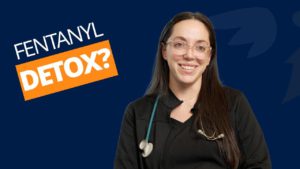Rebuilding Your Life After Rehab: Where to Start
Rebuilding Your Life After Rehab: Where to Start Completing a rehabilitation program is a huge milestone—an achievement worth celebrating. But once you’ve completed rehab, you

October 2, 2019
Toward the end of our drinking and using careers, our substance use had changed from a choice to an absolute necessity. Whatever fun we had once experienced while loaded had long since dissipated. Our substance use had once allowed us to feel more connected and comfortable in social situations. But when we finally hit bottom, we found ourselves isolated and alone.
When we began our recovery journey, we discovered that interacting with other people was at the heart of our new lives. Whether this journey started in a detox center, in a treatment facility, or somewhere else, we immediately sensed the power of having human connections in our lives. People, we began to see, could be allies in our miraculous recovery from a deadly disease.
While in active addiction, there were few people in our lives whom we trusted. Because our lives were organized around our need to use, we judged the value of our relationships based on how useful others were to us. When others failed to do what we wanted, we became angry and resentful at them. This fostered in us a general distrust of other people and encouraged us to shun people in general, preferring instead to isolate ourselves. In isolation, we felt safe. There seemed to us little point in being around other people, since these people always failed us.
After we got clean and began to recover, we learned that a life centered in self-reliance was no longer going to sustain us. In order to recover we had to rely on other people, had to trust others, no matter how uncomfortable this initially made us feel. As we began to participate in a 12-Step recovery fellowship, we learned that, in order to recover from the disease of addiction, we were going to need a sponsor—a person to help us to understand and work through our twelve steps. Once we chose our sponsors and began to share our lives with them, we began to learn that we could indeed trust another person and that this trust would help us begin to lead newly recovered lives.
One of the conduits through which we connected with others when we were in early recovery was through our recovery fellowship. For some of us, the fellowship we joined was Alcoholics Anonymous; for others, it was Narcotics Anonymous or another 12-Step fellowship. Whichever recovery fellowship we joined, our beginning was quite simple: We went to our first meeting.
For many of us, just going to a meeting was an uncomfortable and even scary experience. Walking into a meeting for the first time, we were astonished to see fellowship members talking to one another in a friendly and animated fashion. We heard much laughter and saw that fellowship members seemed to genuinely like one another. Since we were new to recovery, we felt awkward and out-of-place. We certainly didn’t feel happy and many of us wished to leave soon after arriving at our first meeting.
Forcing ourselves to stay, we were approached by one or more meeting attendees. As we began to talk with them, we quickly realized that we had more in common with them than we first believed. Like us, they, too, had greatly suffered while in active addiction. We returned to these meetings again and again and talked with fellow recovering addicts there. Our initial feeling that we didn’t belong soon changed into a strong sense that we were connected to members of this fellowship and that we shared with them a common goal: To get and stay recovered by actively working the twelve steps in our daily lives.
Over time, we began to realize that the common purpose of helping others recover was a foundation upon which our new lives could be built. In active addiction, our primary purpose was sustaining our addiction by whatever means we had at our disposal. Now, our primary purpose had been transformed into a desire to be of service to others, particularly those who were new to recovery and who desperately needed our help. We began to seek out others who suffered from the disease of addiction like we once did so that we could help them start to heal their lives by working the twelve steps of recovery.
What we learned was that reliance upon others had become an asset to us. We began to like being around other people, particularly those in recovery because we shared with them a common purpose. Many of them became our friends, and we began to trust them as we had not trusted other people in a very long time. Recovery, we discovered, had connected us to other people—people upon whom we could rely to have our best interests in mind.
Become a part of this life by calling Summer House Detox Center. You, too, can recover!
If you or someone you know is struggling with addiction in Fort Lauderdale, give Summer House Detox Center a call at 800-719-1090 to schedule a FREE consultation. You can also visit us at 13550 Memorial Highway Miami, FL 33161. We are open 24 hours a day, 7 days a week.
Rebuilding Your Life After Rehab: Where to Start Completing a rehabilitation program is a huge milestone—an achievement worth celebrating. But once you’ve completed rehab, you

From Detox to Recovery: The Next Steps After Completing a Detox Program Detox is the first and most critical step in overcoming addiction, but it’s

Are you looking for a safe and compassionate drug detox center in Kendale Lakes, Florida? If so, look no further than Summer House Detox Center.
For immediate assistance, please call our Admissions Specialists at 800-719-1090.
Speak With A Qualified Addiction Specialist 24/7